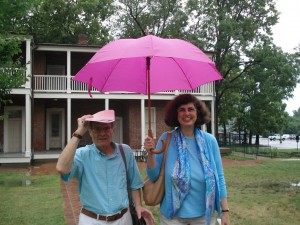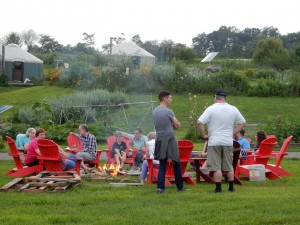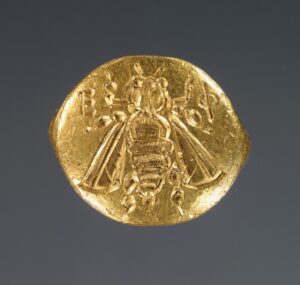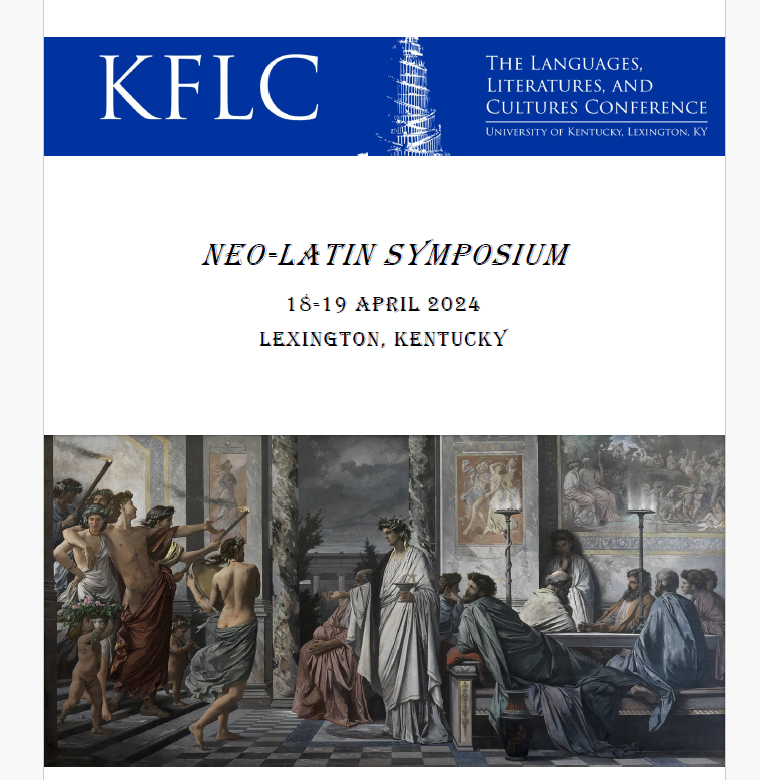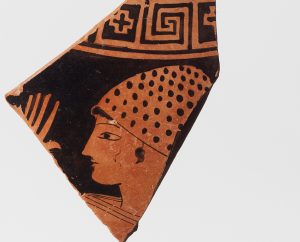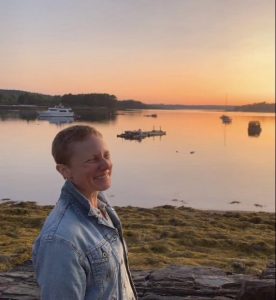July 13–18, 2026
The Dickinson Workshops are mainly intended for teachers of Latin, to refresh the mind through study of an extended text, and to share experiences and ideas. Sometimes those who are not currently engaged in teaching have participated as well, including students, retirees, and those working towards teacher certification.
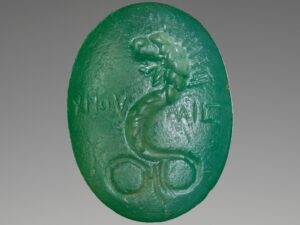
Engraved Gem with Chnoubis. A.D. 100–250. Getty Villa, Gallery 216, 83.AN.437.54. Oval stone engraved on each of its sides. On the obverse is the image of a lion-headed Chnoubis serpent, crowned by twelve rays. Horizontal inscriptions flank each side of the figure: XNOY __ MIS (Chnoumis, a variant for Chnoubis). On the reverse is a Chnoubis-sign (three parallel crooked lines with a crossbar running through them). Image and description source: Getty Museum.
The text for 2026 will be Apuleius’s Apologia, a courtroom speech delivered in the mid-second century AD in the Roman province of Africa by the author, orator, and philosopher Apuleius of Madauros. Apuleius is better known today for his beloved novel, Metamorphoses or The Golden Ass. He stood accused of successfully using magical means to entice a wealthy widow into marriage in an effort to control her very substantial fortune. His accusers were relatives of Pudentilla, including her son (by her first husband) Pudens, and members of her first husband’s family. The judge in the case was Claudius Maximus, who is known to have been governor of the province of Africa in AD 158-159, and is likely the same Maximus to whose teaching Marcus Aurelius pays tribute in Book 1 of the Meditations. The speech is unique in Latin literature, a literary-rhetorical tour de force, and a fascinating mine of information about ancient Roman daily life, magic, religion, toothpaste, and many other topics.
Moderators:
- Thomas D. McCreight, Associate Professor of Classics, Loyola University Maryland
- Odessa Asp, Latin Teacher, Tuscarora High School, Loudoun County Public Schools, Virginia
- Keziah Armstrong, Latin Teacher, Shenendehowa High School, Saratoga County, New York
Fees, Meals, Facilities, and Lodging
The fee for each participant is $600 for those attending in person, $400 for those attending online. The fee for in person attendees covers lodging, breakfast and lunch in the Dickinson cafeteria, the facilities fee, which allows access to the gym, fitness center, and the library, as well as wireless and wired internet access while on campus. The fee does not cover the costs of books or travel, or of dinners, which are typically eaten in the various restaurants in Carlisle. Please keep in mind that the participation fee, once it has been received by the seminar’s organizers, is not refundable. This is an administrative necessity.
Lodging: accommodations will be in a student residence hall near the site of the sessions.
Daily Routine
The first event for those attending in person is an introductory dinner at 6:00 p.m., July 13. Starting July 14, sessions will meet from 1:00p.m. to 4:30 p.m. each day, with mornings left free for preparation. The final session ends at 4:30 p.m. on July 18.
To Register
Please email Mrs. Stephanie Dyson, Classical Studies Academic Department Coordinator (dysonst@dickinson.edu). Include your email, physical address, phone number, and the name of the workshop you plan to attend. A non-refundable fee is due by June 1, 2026 in the form of a check made out to Dickinson College, mailed to Stephanie Dyson, Department of Classical Studies, Dickinson College, Carlisle PA 17013.
For more information, please contact Prof. Chris Francese (francese@dickinson.edu)
 The Conventiculum Dickinsoniense is an immersion seminar designed for those who want to acquire some ability at ex-tempore expression in Latin. A wide range of people can benefit from the seminar: professors in universities, teachers in secondary schools, graduate students, undergraduates, and other lovers of Latin, provided that anyone who considers applying has a solid understanding of the grammatical essentials of the Latin language. (Participants must be at least 18 years of age, unless accompanied by an adult guardian).
The Conventiculum Dickinsoniense is an immersion seminar designed for those who want to acquire some ability at ex-tempore expression in Latin. A wide range of people can benefit from the seminar: professors in universities, teachers in secondary schools, graduate students, undergraduates, and other lovers of Latin, provided that anyone who considers applying has a solid understanding of the grammatical essentials of the Latin language. (Participants must be at least 18 years of age, unless accompanied by an adult guardian).